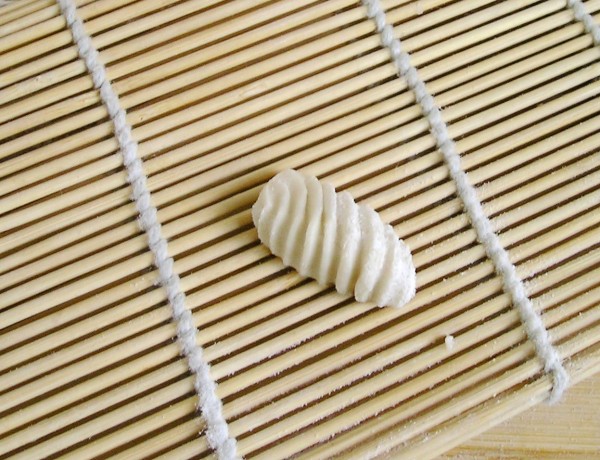"In Dream College Rankings, Harvard University Is Unseated" the Huffington Post
reports. Myriad Facebook statuses gleefully echo this fall from grace. So Stanford is apparently a "dream" college now, topping the list.
On the surface it might seem like a point of pride, but somehow these university rankings and grandiose proclamations about Stanford's appeal worry me. Aside from its reputation as the nebulous "best," what exactly were the qualities that once made Harvard the stuff of dreams? The intellectual rigor? The kinship among students? The inspiration of a shared vision? It ought to be those kinds of things that make a school worth aspiring to, not just the feeling that matriculating there means "being on top." Otherwise, does the appeal lie in social cachet? Is the school a name to open doors, a prop, a tool, a step on the "path to success"?
If we are indeed a "dream school," then I hope this "dream" is to contribute something to the world, not just to make money and get rich. It wouldn't burnish Stanford's reputation if prospective students simply sought entrée into wealth. (Through a distorted vision of the tech industry, for instance.)
This lands just as CS becomes the most popular major at Stanford, and while I think it's great that we are growing a corps of engineers in this country, I'm a little scared that, much as the East Coast universities of old served as finishing schools for those entering high society, Stanford could degenerate into a playground for the aspiring tech elite. (Thankfully, engineering isn't quite that easy, folks. You gotta work and you gotta do problem sets. =P)
At Stanford, we are open to new ideas, new ways of thinking. We strive for difference, we explore the novel, we embrace the unconventional. Innovation is in our blood, and we celebrate it -- but remember, it's not a catchphrase, and it's not a gimmick. It's innovation in service to our ideals.
In the end, we want to be the place that cares for society and seeks to make a difference -- an ethical university, not the school of tycoons.
What do they dream of us? I'm sure plenty of aspiring students do not think in such a mercenary way, and might have real reasons to regard Stanford as a "dream" school. Yet even the phrase "dream school" sounds so tawdry. It brings to mind prom queens and tiaras and pink frosting. (It also reeks of middle-class entitlement.) Celebrating the dethroning of Harvard in a competitive scramble to the top of a questionable heap reflects the kind of zero-sum thinking that motivates at least a subset of those aspirants and pretenders -- a motivation that is profoundly distasteful. It's about image rather than substance, sex appeal rather than heart.
That's why this ranking doesn't feel like a victory. It might even feel emptier than bounding up the list of "best schools" judged by supposedly objective factors. Unfortunately, these Princeton Review rankings perpetuate glib answers rather than considered statements of vision. They cede principle to the masses instead of stamping down and answering:
this is what we stand for. I think that's what gets me: it's a popularity contest, but is that how we want to be defined? If we know who we are, we shouldn't care what these kids or their parents think. It's not an honor to be recognized for a flimsy, throwaway statement.
I also hate that we crow about "beating" Harvard. A constellation of many great institutions is far better for society -- and for democracy -- than one centralizing font of greatness surrounded by mediocre neighbors. As my friend Jennifer Rabedeau pointed out, competition from worthy peer institutions keeps us on our toes. This competition comes not in the form of jostling for rankings, but in the form of real-life striving, where we all seek to better ourselves -- to enact our ideals by reaching for the stars. I'm pretty sure in that ecosystem, we'd actually end up collaborating with our friends from these peer institutions, because we believe in the same things and seek to advance the same causes.
So please, dreamers, understand what it means to join the Stanford community. It's not a golden ticket to comfort or riches, though maybe that happens here and there. It's the opportunity to be trained in skills humanistic and practical; to exercise new ways of thinking; to find compatriots to join you, hand in hand, in a lifelong mission. In fact, a whole array of missions -- some of which seek changes that won't even be realized in this generation's lifetime, but are worthwhile nonetheless.
Becoming part of this place is to live and breathe and believe in an idea. If
that is your dream, then welcome to Stanford.
Postscript: And damn, I recognize again and again that what "going to Stanford" means is being given the privilege -- sometimes ridiculous amounts of privilege -- to try something different in this world. For that, I am exceedingly grateful.
*Welcome to Stanford... oh this phrase. Despite my high-sounding rhetoric, I am actually quite cynical, having faced the monsters of bureaucracy and observed clear violations of the so-called sense of Stanford community. I have witnessed how laziness and moral apathy absolutely shred academic ideals, how the spirit of this place can be drowned by the weight of bureaucratic anchors. In such moments, I will tear the dream apart and point out how this institution fails in so many respects, fails on a daily basis, in ways small and large, to live up to its ethos.
The dream ... I would look for it no matter where I went; but I ultimately chose Stanford because that's where I thought it would be realized. It makes it desperately sad when this beloved place, my patria, civitas dei, city of wonder, falls short. Even today, I gag when I say the phrase "Welcome to Stanford!" because it is a beautiful, evanescent lie. Worse, it was one that I believed in so deeply, so hard, and for so long. I was devout, and sometimes I hate myself for having been that way.
But then the eternal idealist residing inside me fights back, refuses to yield, and my love for this place and what it's supposed to stand for eventually come roaring back. It's a dilemma, ain't it?
After all, alongside the failures, there are also fierce, bright flares of hope -- moments that charge me with joy and pride and belief, and renew my sense of what's possible. We run alongside the stream of ideals, dipping our hands in its cool, flowing waters; and we are lifted by freiheit, the wind of freedom, our champion and guide, an embrace that carries us home.
































